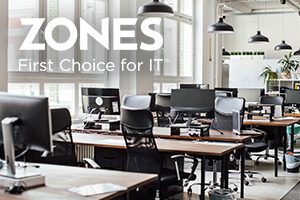Upgrading to Windows 10 can work wonders for cybersecurity
Amid all the workplace modernization happening in the world today, IT administrators do have one worry that remains, and that’s cybersecurity. You’ve...
2 min read
![]() Zones
:
Aug 22, 2019 2:18:01 AM
Zones
:
Aug 22, 2019 2:18:01 AM

It’s hardly the most glamorous aspect of workplace modernization, but it’s nonetheless one that needs to be addressed – there are far too many employees out there in the world today using machines with outdated operating systems. It’s not hard to see how this problem arises – most companies don’t buy their people new computers very often, and for the most part, they simply leave them to fend for themselves with the original OSs they started with. This can go on for years longer than it should.
Here are a couple of stats to underscore the point. According to a recent report from Spiceworks, 32% of companies today still have at least one computer that’s running Windows XP. This is pretty amazing consider that XP debuted all the way back in 2001 – these companies have an OS that’s almost two decades old! Microsoft hasn’t offered support for XP users since 2014. Additionally, 79% of organizations still have at least one instance of Windows 7. Likewise, that operating system is now a decade old, and the service window is about to come to a close.
When you consider these numbers, it’s not surprising that TechRepublic recently quipped: “Microsoft’s biggest competition is Microsoft itself.” The company doesn’t fail to sell operating system licenses because consumers are going with another company’s OS; rather, when their sales are flagging, it’s because people are content simply to stick with the version of Windows they already have. Lots of people (and, let’s be honest, lots of companies too) like inertia.
Sometimes in business, you can skate by just by doing things the same way you always have. When it comes to operating systems, that’s not such a good idea. TechRepublic cautions against a number of different data vulnerabilities that are heightened when you’re working with an outdated OS. Zero-day attacks, insider data leaks, supply-chain attacks, DDoS attacks, and cryptojacking all ranked high on the list of security issues that plague companies with old OSs. Already, the majority of companies have gaps in their security preparedness, and this issue will likely get worse before it gets better. Remember: Windows 7 support ends on Jan. 14.
Of course, the case for moving on from an outdated OS and adopting Windows 10 isn’t just about fearmongering – there are positives to be gleaned as well. Windows 10 users today find it much easier to embrace modern technologies such as the use of virtualized environments and innovative new devices like Intel’s seventh-generation chipsets. Additionally, with the latest version of Windows at their fingertips, employees have an easier time getting the tech support and other services they need.
At Zones, we believe we’re the best possible business partner for a company looking to usher in new, modernized operating systems for their employees. The business case starts with Zones ITAM Solutions – a simple, non-intrusive process that we use to assess your IT infrastructure and determine your most critical needs. Beyond that, we also boast a strong team of Solution Architects, all of whom hold certifications in the design and deployment of best-in-class technologies. Issues like outdated OSs can be a real downer for your business, but at Zones, we’re more than capable of lifting you back up.
When it comes to Workplace Modernization, there’s a whole world of services we can offer your business, and upgrading your OSs is just the beginning. Explore our site to find out what else we can offer.

Amid all the workplace modernization happening in the world today, IT administrators do have one worry that remains, and that’s cybersecurity. You’ve...

If you take a look around the business world, it’s readily apparent that workplace modernization is happening all around us, and that’s especially...

Around the business world today, “workplace modernization” is a buzzword you hear a lot. Many corporate IT leaders are talking about the importance...